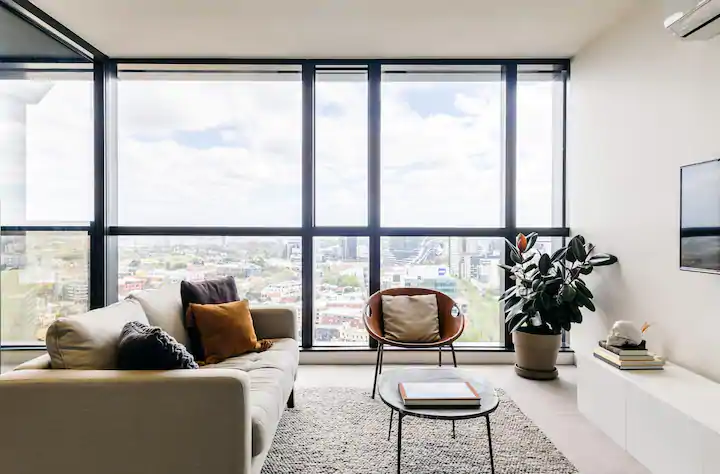A Crash Course in Airbnb Long-term Rentals for Your Property
As a result of COVID-19, Airbnb long-term rentals are gaining popularity as a way for hosts to earn rental money. Short-term rentals have decreased in popularity as a result of travel restrictions. Numerous hosts have been forced to implement mid or long-term stays to remain afloat.
These accommodations are increasing appeal among domestic tourists and those who work remotely yet need a change of environment. Extended stays may assist Airbnb hosts in increasing occupancy and maintaining a regular rental revenue stream.
Continue reading to learn more about Airbnb long-term rentals and the advantages they may provide to your vacation rental company.
Why is Airbnb Becoming Popular for Long-Term Rentals?
Dedicated to visitors
Daily living, including conventional vacations, has been disrupted by the coronavirus epidemic. With foreign travel halted in most nations, many individuals seek other vacation options. A common approach is to do “nearcations” or “staycations.” They continue to let travelers holiday in their nation.
The outbreak has also impacted businesses and the property market. Numerous individuals work from home now and will continue to do so in the long run. Vacation rentals with a “home office” are popular with work-from-home professionals.
This enables them to work while also taking advantage of the change in their surroundings. College students and interns may also reserve long-term Airbnb apartments, which provide more privacy than hotels and private dorms.
For Hosts
For hosts suffering a decline in bookings, long-term and monthly rentals offer a stable revenue source. While hosts often make more money from short-term rentals, this might become a concern if reservations decrease.
Long-term renting may be the answer to the problem of low occupancy rates. Many visitors who arrange longer-term rentals do so intending to stay at least one month, if not longer. Long-term Airbnb rentals might assist hosts in maintaining their businesses during slower months.
Additionally, longer rental durations may lessen hosts’ workloads since they will not have to spend as much time and money promoting and cleaning their rentals.
What Is the Difference Between Long-Term and Short-Term Rental Arrangements?
According to Airbnb, a short-term stay is defined as one that is less than 28 days. Airbnb considers a stay that extends over 28 days to be a long-term or “monthly” stay. Not all Airbnb rentals accept long-term reservations; owners select whether or not to make their homes accessible for extended stays.
Renting for mid and long-term stays may also have different motivations. The majority of short-term guests are looking for a short getaway or holiday. When their booking is complete, they normally return home.
Long-term Airbnb properties are often rented by those traveling for a job (such as medical professionals) or research. Individuals who have been confined to their homes for months due to the epidemic may also hire a long-term residence for an extended vacation.
What Are the Recent Changes to Airbnb’s Long-Term Rental Policy?
To assist visitors in locating long-term rentals, Airbnb now enables guests to search for and book longer stays in its “places to stay” section. Longer-stay rentals will be shown for reservations of 28 days or more. Additionally, the listings for these long-term Airbnb homes will be tagged with features appropriate for extended visits.
Should My Airbnb Business Include Long-Term Rentals?
Both long-term and short-term rentals have their own set of benefits and drawbacks. When considering whether to provide long-term Airbnb rentals to visitors, numerous critical criteria should be considered, including the following:
The location of your rental. If your vacation rental is in a tourist hotspot, you may want to contemplate long-term rentals or offer it solely for a portion of the year. During the hot season, your listing will likely get a significant volume of visitors and reservations. In such instances, giving an Airbnb long-term rental may be profitable just during your off-season.
If you are experiencing financial difficulties, long-term renting may be a viable option for generating more cash. Over the last year, your total net income from short-term rentals. Examining your net income for a year will assist you in determining if you are still earning enough to pay your monthly overhead expenditures and maintain your profit margins from short-term rental.
The highest annual net income you might earn via long-term rental. Once you’ve determined your net income for the previous year, estimate how much you may make from long-term renting over a year.
To determine what you should charge, check what comparable long-term Airbnb properties in your region charge. Then, compare this amount to the income you’ve previously received from short-term rentals to see whether you may make more.
If you only wish to provide long-term rentals during your low season, compare your net earnings from the low season to the amount you might earn from a longer rental duration during the low season.
There is no correct or incorrect solution to the question of whether or not to provide long-term leases to your visitors. It is determined by your business’s demands and future goals. If you’re hesitant, you might conduct a test phase where you advertise your property for long-term occupancy and monitor the response and reservations.
Pros and Cons of Airbnb Long-Term Rentals
Pros
Long-term rentals can be a dependable income source (even during low season and slow months). One advantage of long-term renting is that your income will likely be consistent throughout the year. This might assist in sustaining your profits if you have seen a decline in bookings.
Management duties are decreased. When compared to short-term renting, tasks such as guest communication, check-in and check-out, and web marketing are reduced when renting to a single visitor at a time. Generally, after the visitor has checked in and settled into the property, you will speak with them only if a problem develops.
You have the option of furnishing your rental (or a portion of it). While fully equipped apartments are required for short-term rentals, this is not necessarily the case with Airbnb long-term rentals. When seeking a longer lease, many renters bring their furnishings. This might help you avoid the additional expense of renting more furniture.
Different amenities are required. The short-term rental sector may be highly competitive. This is because the guest-to-rental ratio often favors visitors, who may choose from various rentals. Hosts often invest more funds in required facilities to differentiate their rentals. This is less typical with Airbnb long-term rentals since guests’ amenities vary. Guests renting for an extended time will choose basic conveniences such as a dishwasher over a hot tub or a campfire.
Cons
You will have less control over how you handle your rental. Renters who stay for an extended time are paying for space and privacy. This means you will be unable to manage your rental property as you choose and will be unable to come to your home to do maintenance or inspection work without first contacting beforehand. Additionally, if you have guests staying in your Airbnb long-term rental, you will not utilize it on weekends or holidays.
Less opportunity for profit maximization. You may modify the pricing to maximize your revenue during peak seasons and decrease it during the off-season when it comes to short-term rentals. While this might be beneficial in terms of earning more during the low season, it also means that you’re likely to earn less during the peak season. This is often impossible if you rent your house to visitors on a longer-term basis for a set monthly charge.
You may need to do a background check on all prospective renters. With short-term rentals, your visitors are likely to stay for just a few days or weeks at the most. Since they pay in advance, there is no possibility of a payment default. Unfortunately, there is a possibility of payment failures with Airbnb long-term rentals. It is prudent to do a credit check on all visitors before allowing them into a long-term rental arrangement. This may get tedious, particularly if several visitors are interested in your rental home.
How to Convert Your Property into an Airbnb Long-Term Rental
Optimize your rental for long-term occupancy
Make any essential repairs to your rental property. Guests searching for long-term Airbnb rentals choose apartments with critical utilities such as a washer and dryer, a refrigerator, and a fully equipped kitchen if you want to attract working professionals, set up a workstation, and provide enough Wi-Fi.
Additional instructions and tips are provided. Visitors must get a full guidebook or welcome book that includes information such as when rubbish is collected and the schedules of any gardeners or cleaners. Adding valuable information to your welcome book, such as local gyms to join or leisure activities to participate in, will also assist your visitors in enjoying their stay more.
Enhance the visibility of your Airbnb listing
To promote your property to visitors interested in longer stays, you’ll need to optimize your Airbnb listing as necessary. Three approaches to improve your listing to get guests to reserve your Airbnb long-term rental are as follows:
Increase the duration of your rental reservations. Ascertain that the trip details portion of your listing’s availability has been modified to allow reservations longer than 28 days.
Weekly and monthly discounts may be applied to your listing. Offering reductions on your monthly rates will appear in visitors’ search results, encouraging them to book with you.
Utilize a policy of long-term cancellation. Cancellations made within 48 hours of booking and at least 28 days before the booking date for long-term stays will be returned in full. Any cancellations made after 48 hours will be repaid, less the first 30 days and the service cost. If visitors cancel their reservation during their stay, they will be charged 30 days after the cancellation date or for the remainder of their stay if it is less than 30 days.
Solicit signatures on a rental agreement from your visitors. To reduce the danger of lengthy stays, require your visitors to sign a rental agreement. Ensure this requirement in your house rules so that your visitors are not startled after making a reservation.
How to Automate the Management of Your Rental Property
While long-term renting may not provide the same profit potential as short-term renting, Airbnb long-term rentals are a dependable option when travel is limited or reservations are low. Lodgable can help increase your bookings and streamline your business. Follow the link below to schedule a demo and learn more about how Lodgable can benefit your business.









